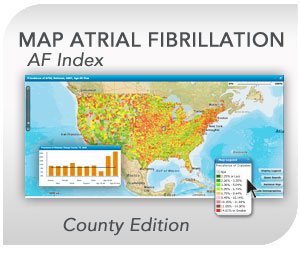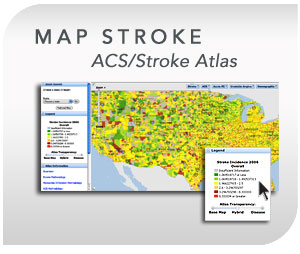Stroke Reports
Saturday, July 5th, 2014

STROKEAHA: June 24, 2014 Background and Purpose—Race/ethnic-related differences in safety of intravenous thrombolytic therapy have been shown in patients with myocardial infarction, but not studied in ischemic stroke. Methods—Using data from the Get With The Guidelines (GWTG)-Stroke program (n=54 334), we evaluated differences in risk-adjusted bleeding rates (any, symptomatic intracerebral hemorrhage [sICH], serious life-threatening [excluding sICH], […]
Stroke Reports
Saturday, July 5th, 2014

Annals – Clinical Guidelines | 17 June 2014 Description: In February 2014, the American Heart Association/American Stroke Association released their first guideline focused on stroke prevention in women. This new guideline highlights unique risk factors for stroke in women, including oral contraception and hormone therapy, and pregnancy-associated disorders, such as preeclampsia, that may have long-lasting consequences on a woman’s health. It […]
Stroke Reports
Saturday, July 5th, 2014

J Am Heart Assoc: June 3, 2014 Background We evaluated temporal trends in ischemic stroke and warfarin use among demographic subsets of the US Medicare population that are not well represented in randomized trials of warfarin for stroke prevention in nonvalvular atrial fibrillation (AF). Methods and Results One‐year cohorts of Medicare–primary payer patients (1992–2010) were created using the […]
Stroke Reports
Saturday, July 5th, 2014

STROKEAHA: May 29, 2014 Making decisions in medical care is a difficult task, involving a variety of cognitive processes. Decision making is defined as the process of examining possibilities, risks, uncertainties, and options, comparing them, and choosing a course of action.1,2 Decisions based on erroneous assessments may result in incorrect patient and family expectations, and potentially […]
Stroke Reports
Saturday, July 5th, 2014

STROKEAHA.: May 29, 2014 Background and Purpose—A potential way to improve prehospital stroke care and patient handoff is hospital-directed feedback for emergency medical service (EMS) providers. We evaluated whether a hospital-directed EMS stroke follow-up tool improved documentation of adherence to the Rhode Island state prehospital stroke protocol for EMS providers. Methods—A standardized, 10-item feedback tool […]





























